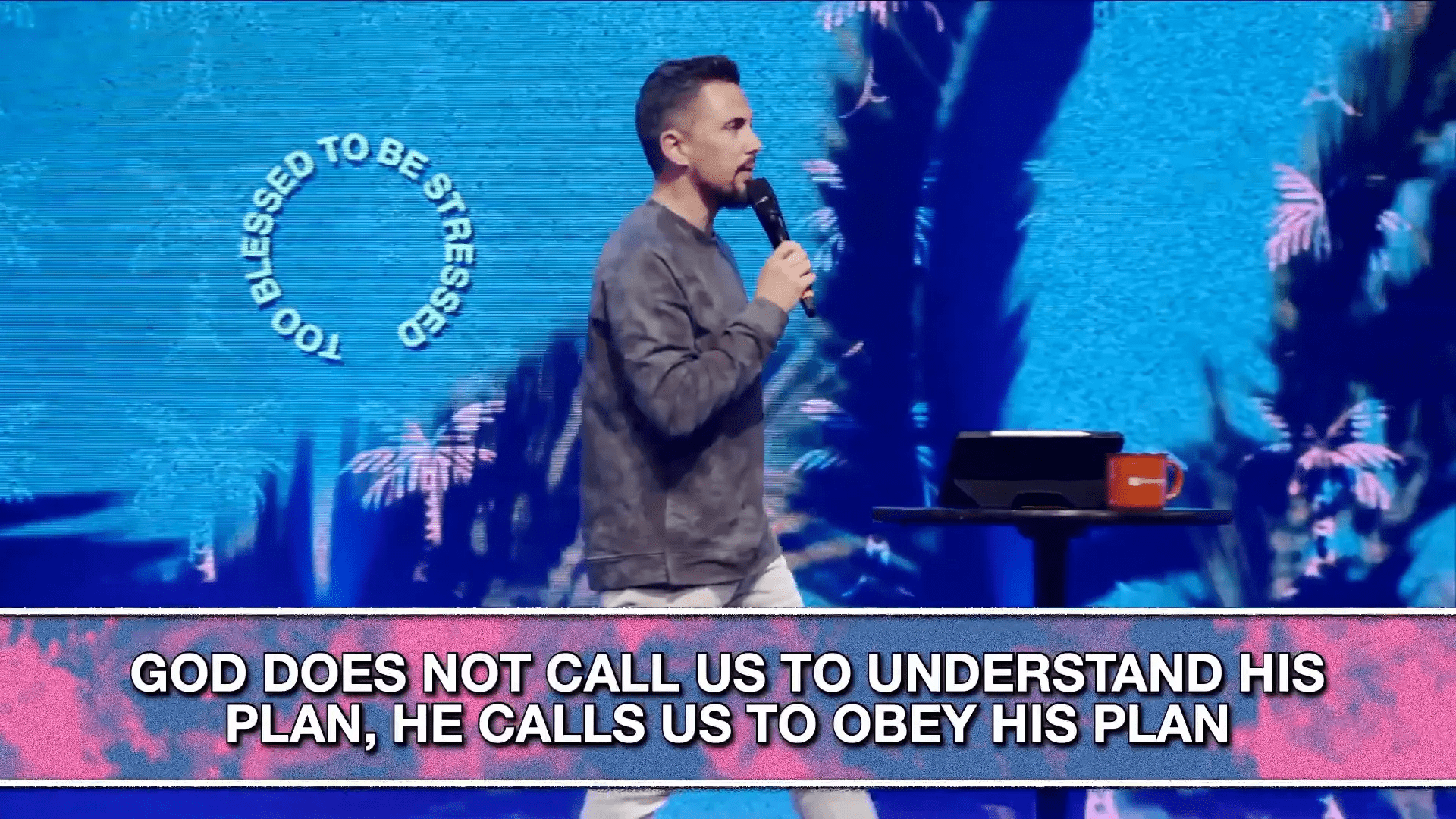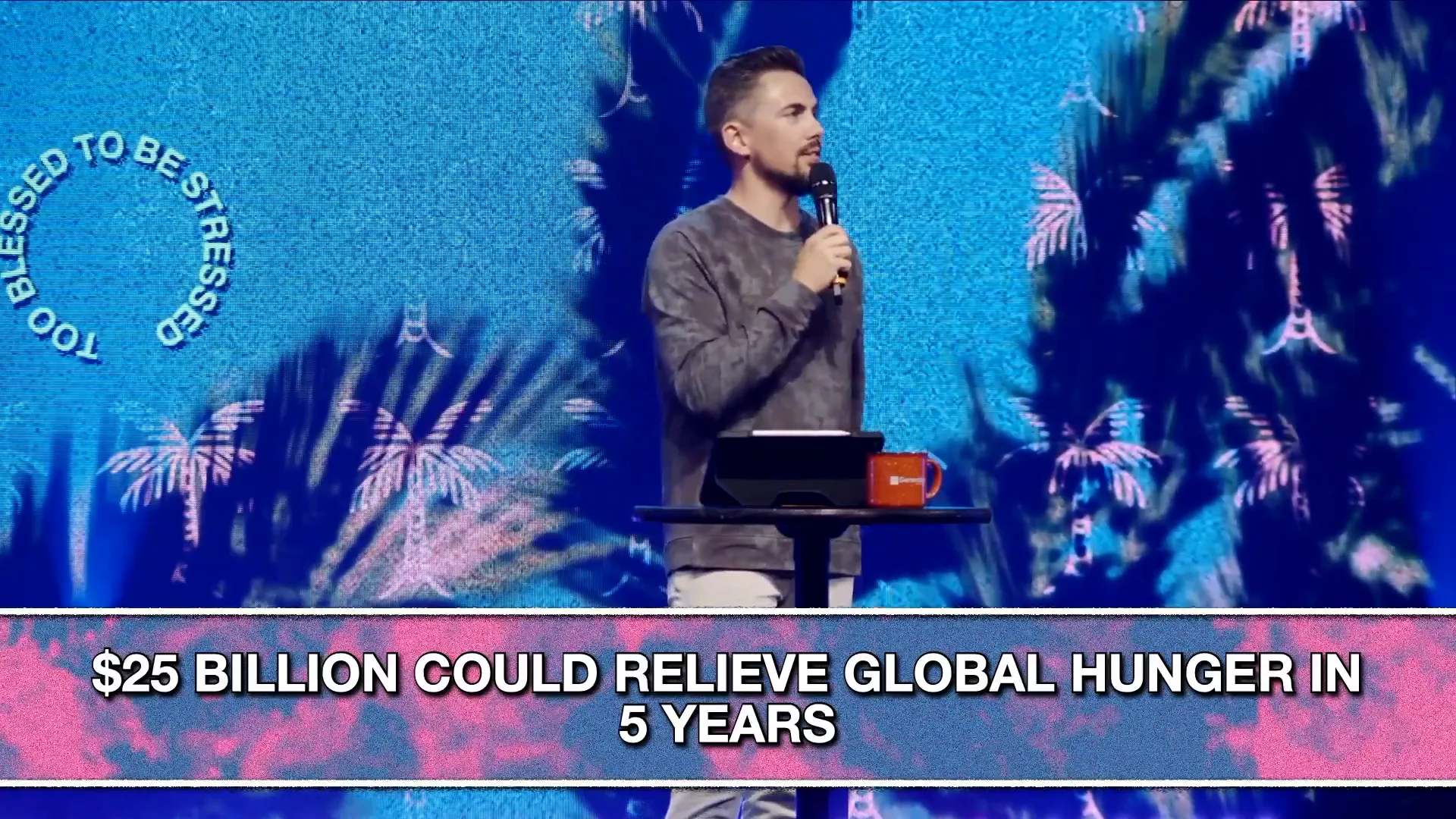Too Blessed to Be Stressed | Week 3 | Mike Stephens
Too Blessed to Be Stressed: Embracing Generosity and Obedience
In the final week of the series ‘Too Blessed to Be Stressed,’ Pastor Mike Stephens invites us to explore the powerful impact of living a generous life. Through the biblical story of Joshua and Achan, he highlights the importance of obedience to God’s will and the blessings that come from it.
Introduction to the Series
This series, ‘Too Blessed to Be Stressed,’ focuses on the transformative power of generosity. It encourages us to view our lives through a lens of abundance rather than scarcity. Each week, we dive deeper into what it means to be generous, not just with our finances but with our time, love, and resources, reflecting the heart of God.

The Importance of Generosity
Generosity is not merely about giving; it’s a lifestyle that reflects our values and priorities. When we live generously, we align ourselves with God’s purpose for our lives. Generosity impacts not just the receiver but also the giver, creating a ripple effect of blessings in our communities.
- It fosters community and connection.
- It encourages a mindset of abundance.
- It reflects God’s character and love.

The Challenge of Discussing Money in Church
Talking about money in the church can be uncomfortable. Many people associate church with spiritual matters, and money discussions can seem out of place. However, the Bible is clear that money and generosity are significant themes, and avoiding them only hinders our growth.
Statistics reveal that a large portion of Jesus’ teachings centers around finances and possessions. As such, it’s essential to approach these topics with transparency and honesty.

The Biblical Basis for Generosity
The Bible offers numerous examples of generosity, from the widow’s mite to the Good Samaritan. These stories illustrate that generosity is not determined by the amount given but by the heart behind the gift. God desires us to give freely and cheerfully, reflecting His love and grace.
Understanding God’s Promises
God’s promises often come with conditions, requiring us to act in faith and obedience. Understanding these promises can help us cultivate a heart of generosity. When we grasp what God has in store for us, we are more inclined to live out His principles.

The Story of Jericho
The story of Jericho is a powerful testament to obedience and faith. The Israelites, led by Joshua, were instructed to march around the city for seven days. This unconventional strategy required immense faith, showcasing that God’s ways often defy human logic.
Obedience vs. Understanding
In our walk with God, we often grapple with the tension between obedience and understanding. The Israelites had no visible signs of progress while marching around Jericho, yet they chose to trust God’s plan. This act of obedience, despite their lack of understanding, ultimately led to their victory.

The Role of Rahab in the Story
Rahab’s story is a remarkable example of faith and redemption. Despite her past, she chose to protect the Israelite spies, leading to her family’s salvation. This demonstrates that God can use anyone, regardless of their history, to fulfill His purposes.

Consequences of Disobedience: The Story of Achan
Achan’s disobedience serves as a cautionary tale. After the fall of Jericho, he took forbidden items, which led to disastrous consequences for himself and the Israelites. This highlights the importance of adhering to God’s commands and the impact of individual choices on the community.

God’s Timing and Our Patience
Understanding God’s timing is crucial for our growth and faith. We often desire instant results, but God works on a different timeline. He sees the bigger picture, and trusting in His timing requires patience and faith. When we wait on the Lord, we are preparing ourselves for the blessings ahead.
Just like the Israelites who wandered for years before entering the Promised Land, we too must learn to be patient. Sometimes, what seems like a delay is actually God’s way of preparing us for something greater. We need to remember that waiting is not a waste of time; it’s an opportunity to deepen our relationship with Him.

Two Types of Generosity
Generosity can be categorized into two primary types: spontaneous and strategic. Both forms are essential in living a life that reflects God’s love and grace. Understanding these two types will help us become more effective in our giving.
Spontaneous Giving
Spontaneous giving comes from a place of impulse and compassion. It’s that feeling you get when you see someone in need and feel compelled to help. This type of generosity is often unplanned and can lead to beautiful moments of connection.
For instance, you might encounter a friend going through a tough time and feel moved to provide support. This is where your heart responds immediately, and you give without hesitation. Spontaneous giving is a reflection of God’s heart, as we see in many biblical accounts where Jesus was moved with compassion for those in need.

Strategic Giving and Tithing
Strategic giving, on the other hand, involves planning and intentionality. Tithing is a key aspect of strategic giving, where we set aside a portion of our income to honor God. Tithing isn’t just a financial transaction; it’s a spiritual practice that reflects our trust in God’s provision.
When we tithe, we acknowledge that everything we have is a gift from God. It’s about placing God first in our finances and demonstrating our faith. Tithing helps us prioritize our resources and reminds us that our trust should be in God, not our wealth.

Understanding Offerings
Offerings are distinct from tithes and represent anything we give above and beyond our regular tithing. They are acts of generosity that stem from gratitude and a desire to support the work of God’s kingdom. Understanding the difference between tithes and offerings can help us give more purposefully.
When we give offerings, we contribute to specific needs or projects, such as missions, community outreach, or church building initiatives. This type of giving allows us to be part of something bigger than ourselves, making a tangible impact in our communities and beyond.

The Impact of Generosity on Community
Generosity has a profound impact on our communities. When we choose to give, we create a culture of support and encouragement. Generosity fosters connections between individuals and strengthens the fabric of our community.
As we see in Acts, when the early church shared their resources, no one was in need. This is the power of collective generosity. When we all contribute, we can meet the needs of those around us, demonstrating God’s love in action.

Encouragement to Take Next Steps
Each of us is on a unique journey of faith, and part of that journey involves taking steps toward greater generosity. Whether it’s committing to tithe, giving spontaneously, or increasing your offerings, there is always a next step to take.
Reflect on what that next step looks like for you. It might mean adjusting your budget to prioritize giving, or it might involve reaching out to someone in need. Whatever it is, trust that God will equip you to take that step.

Closing Prayer and Invitation
As we conclude, let’s take a moment to pray and reflect on what we’ve learned. Generosity is not just about finances; it’s about our hearts and our willingness to serve others.
Heavenly Father, we thank you for the opportunity to give. Help us to be generous in all aspects of our lives—spiritually, emotionally, and financially. May we reflect your love through our actions and impact the world around us. Guide us as we take our next steps in faith. Amen.
